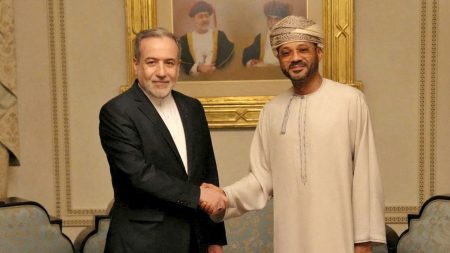Greta Thunberg’s Israeli Detention Experience Sparks Controversy
In a heated exchange of claims and counterclaims, climate activist Greta Thunberg’s reported experience in Israeli custody has ignited international controversy. The 22-year-old Swedish activist was among approximately 450 people detained when Israel intercepted the Global Sumud Flotilla on October 1st. This humanitarian convoy of 42 boats had departed from Turkey with the intention of breaching Israel’s maritime blockade of Gaza to deliver aid. According to correspondence from the Swedish Foreign Ministry reviewed by The Guardian, Thunberg described her detention conditions as “harsh and exhausting,” claiming she developed rashes possibly from bedbugs, suffered dehydration, and was forced to sit for extended periods on hard surfaces with limited access to food and water.
Israel’s Foreign Ministry has vehemently denied these allegations, dismissing them as “brazen lies” in a statement shared on social media platform X. The ministry insisted that all detainees’ legal rights were fully respected, with access to food, water, legal counsel, and medical care throughout their detention. Officials pointed to court documents from an October 5th hearing before Israel’s Population and Migration Tribunal, where Thunberg reportedly requested deportation to Sweden but made no formal complaints about mistreatment during her custody. This discrepancy has raised questions about the veracity of the claims and the timing of when these allegations surfaced—after Thunberg had already left Israel rather than during her detention.
The situation has further escalated with additional allegations from both sides. Turkish journalist Ersin Çelik, who participated in the flotilla, told Anadolu Agency that guards “dragged little Greta by her hair, beat her, and forced her to kiss the Israeli flag”—a serious accusation that has not been independently verified. Meanwhile, Israeli authorities countered with their own claim, stating that a Spanish detainee from Thunberg’s flotilla had allegedly bitten a female medical staff member at Ketziot Prison. These competing narratives have transformed what began as a humanitarian mission into a complex diplomatic incident with each side presenting drastically different accounts of what transpired.
Israel’s National Security Minister Itamar Ben-Gvir took a particularly hard line on the matter, characterizing the flotilla participants as “supporters of terrorism” and expressing pride that they “experienced the same conditions as terrorist detainees.” This statement has drawn criticism from human rights advocates who argue that such rhetoric undermines due process and proper treatment of detainees regardless of the political context of their actions. The flotilla itself was described by organizers as a humanitarian mission, though Israeli officials viewed it as a provocative attempt to break a blockade they maintain is necessary for security purposes against Hamas, which controls Gaza and is designated as a terrorist organization by Israel and several Western nations.
The Global Sumud Flotilla had attracted international attention even before its interception. Reports emerged that the convoy had been bombarded with ABBA music after their radios were allegedly hijacked—a psychological tactic that added another unusual dimension to the incident. The mission was largely symbolic in nature, as experts had previously noted that the flotilla would face significant challenges in actually unloading supplies on Gaza’s beaches due to Israel’s strict enforcement of the maritime blockade. Despite this, the activists proceeded with the mission, highlighting the desperate humanitarian situation in Gaza following months of conflict after Hamas’s October 7, 2023 attack on Israel and the subsequent Israeli military response.
This incident fits into a broader pattern of Thunberg’s evolution from a climate activist to a more broadly engaged humanitarian figure willing to take direct action on geopolitical issues. Since gaining fame for her school strike for climate change at age 15, Thunberg has increasingly used her platform to address various social justice causes, including the Israel-Gaza conflict. Her detention and the subsequent dispute over her treatment illustrate the challenges activists face when entering complex geopolitical conflicts where narratives are deeply contested. As both sides continue to defend their positions, the truth about Thunberg’s detention experience remains elusive, buried beneath layers of political positioning and competing claims. What remains clear is that humanitarian efforts in the region continue to be fraught with difficulty as the broader conflict shows little sign of resolution.














